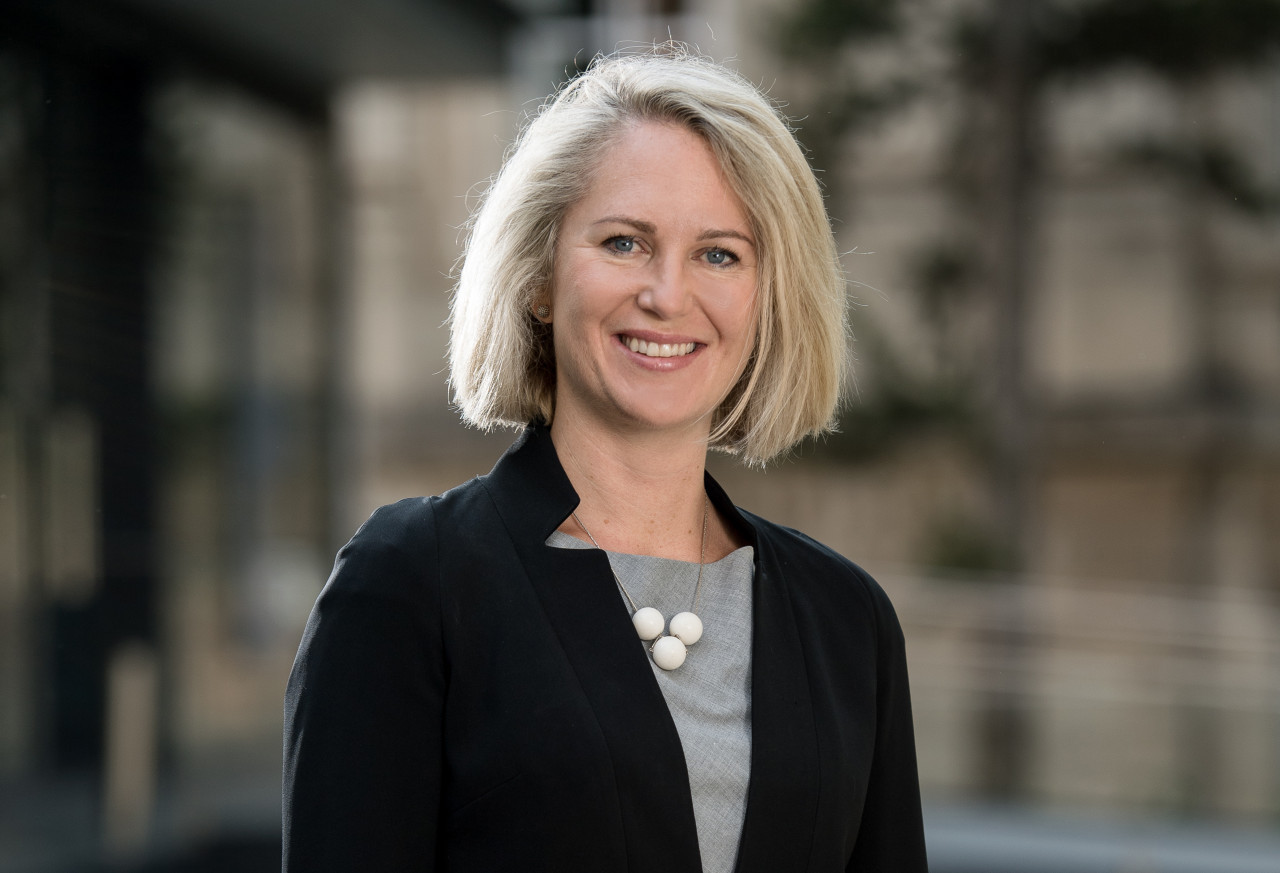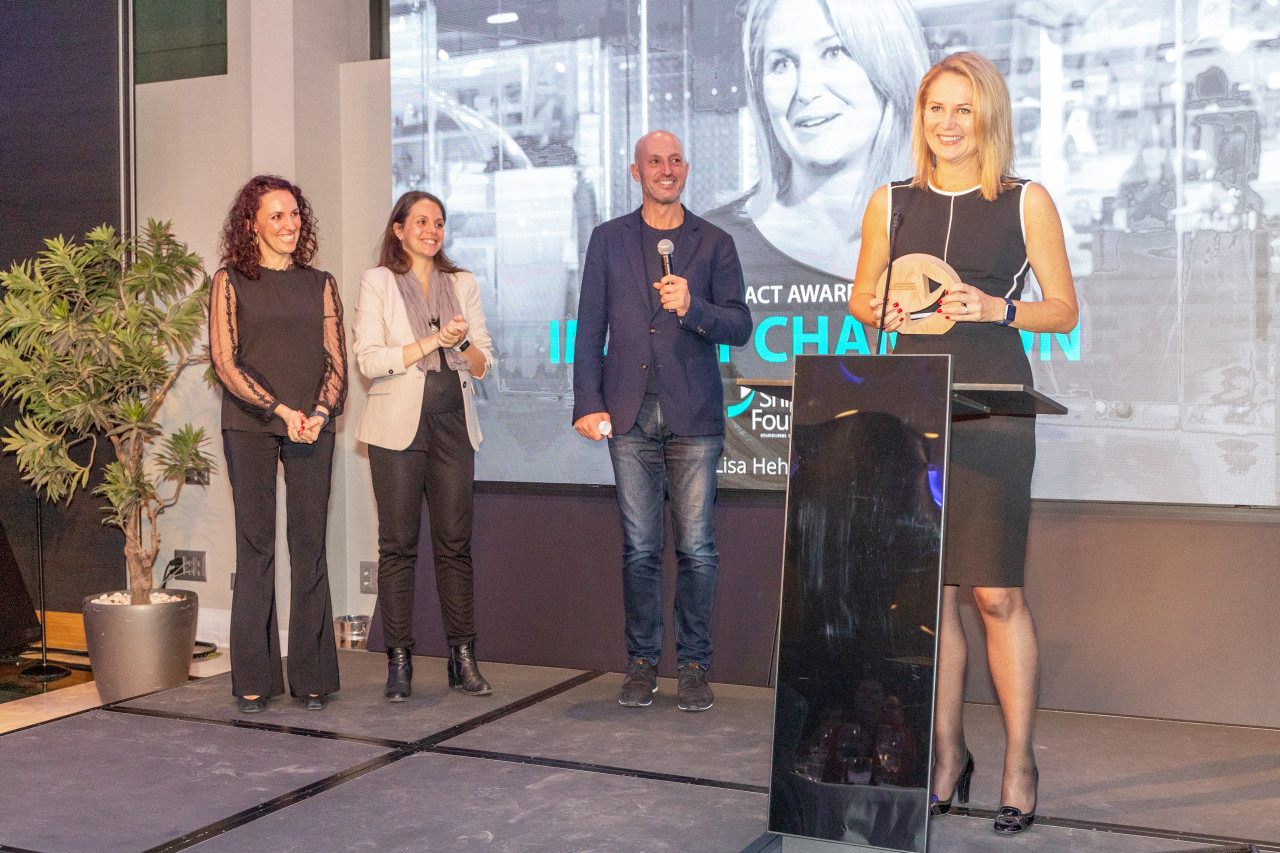Lisa Hehenberger, Associate Professor at ESADE Law and Business School in Barcelona and a member of Impact Investor’s Advisory Board, thinks the essence of the ‘social’ contract in entrepreneurship and impact could come down to one big thing: being grateful.

CV
- Associate Professor at ESADE Business School in Barcelona, where she launched its Center for Social Impact and Social Impact Lab
- PhD in management, IESE Business School, University of Navarra, and expert in venture philanthropy, impact investment, and social entrepreneurship
- Board- and sitting member of major funds, associations and international working groups, including the OECD’s high-level Social Impact Investment Expert Group
- Member of the Impact and Sustainable Finance Faculty Consortium, Kellogg School of Management, Northwestern University, and CNBC’s ‘Disruptor 50 Advisory Council’
- Advisor to the Academic Working Group on Impact Measurement and Management CASE, Duke University, the United Nations Development Programme (UNDP)
Researcher, teacher, creator, activist, board member, mother: Dr Lisa Hehenberger wears more hats than your average former banker turned impact investment and social entrepreneurship expert. Still she finds time to speak with Impact Investor about her career, philosophy and the state of social entrepreneurship.
It’s clear from the outset that her upbringing and earlier stint in investment banking bring unique perspectives to her teaching and academic pursuits. “I like to present myself as a thinker but also a doer in the social, investment and entrepreneurial impact world,” Hehenberger says.
It is an important distinction in a field that melds high-minded ideas with real-world actions. Somewhere in between is the ‘impact balance’ needed for a sustainable future, she suggests.
If proof is needed, look no further than the Center for Social Impact she launched as a spin-off from ESADE’s Entrepreneurship Institute.
Together with her team, they choreograph research projects exploring fresh angles about and for social impact with what she calls “rigour, relevance and reach,” from the emergence of migrant social entrepreneurship and social impact bonds to the evolution of venture philanthropy and impact investing in Spain, and beyond.

Nurturing next-gen impact
In her five-plus years at the prestigious business school, she has also been the driving force behind ESADE’s thriving impact community and new Social Impact Lab for alumni and MBA graduates to interact and mentor current ESADE students taking courses in the impact sector.
It provides a unique ‘living lab’ experience where students can start connecting with practitioners and the wider “impact ecosystem” through events and mentoring activities.
The idea is to nurture the next generation of impact leaders through both “inner and outer development”. The inner, Hehenberger explains, is the intrinsic values students develop and the principles that then guide them in certain career directions or through the choices they make.
“It is something like an inverted discovery process to better understand individuals’ impact journey,” she says, and that in turn influences how they interpret the world around them, often expressed as a ‘theory of change’ in impact investing parlance.
The outer journey, the professor continues, is then about finding and channeling that internal essence. “With a bit of self-reflection,” she says “everyone can and must find it.”
Pool of knowledge
She says ESADE’s backstory is meaningful because it draws on the Jesuit school of educational wisdom developed many centuries ago. The Jesuit movement was founded by Ignatius de Loyola, a Spanish soldier turned priest, in August 1534.
Without wishing to sound too New Age, she says there are parallels to the methods of self-reflection and meditation, and even “movements in Silicon Valley centred around gratefulness,” which play a part in reconciling the inner and outer development of future business leaders and impact investors.
As a business school, ESADE attracts a typical profile of eager future business leaders. But those enrolled in Hehenberger’s classes are clearly looking at business in a new way, as aspiring impact and social entrepreneurs.
And there are more and more showing interest in the topic. Her elective course on impact investing action is oversubscribed with significant waiting lists, which she rather modestly takes as a “good sign”.
The job is not just about teaching and research, it is also about shaping minds and careers.
“With the help of ESADE career counsellors and alumni,” she reflects, “the Lab gives me the chance to put a deep pool of knowledge here at the institution to use in developing tools for students to explore the deeper ‘inner’ questions, which will prove invaluable for the ‘outer’ development, their real sense of purpose in a meaningful career and life.”
Value system
She recounts her own journey growing up in Sweden and how that clearly imprinted a strong sense of social justice and affinity with nature, as key ingredients in her understanding of how environmental, social and governance (ESG) issues work together in a modern organisational setting.
“I’ve always been into nature and developed an active interest in animal welfare when I was young,” she recalls, which pre-empted a decision to become a vegetarian at a time when it was less common and “led to some battles at home.”
Her sense of social justice and interest in gender equality, child poverty and so on all matured over time and culminated in a career that tries to make use and sense of these feelings and experiences, in other words, “All the topics I really care about!”
Her thesis on the business side of her own value system is also informed by earlier experiences and choices. With fresh ink on an economics degree from Stockholm School of Economics, she moved to London and started a career in investment banking which then took her to Spain. But that ‘inner voice’ was urging her into academia and the world of venture philanthropy (her PhD subject), and ultimately the related field of impact investing.
Philanthropy versus impact
Her view on the ‘philanthropy versus impact’ question is that both serve a purpose and should not be confused. Impact is still a for-profit model, she points out, with organisations facing different pressures on them to reach financial sustainability through clear financial and impact targets.
“The philanthropy model does not really require beneficiaries to be financially sustainable and they will be eternally dependent on funding in that way,” she explains.
She adds that “while impact investing is a powerful tool and model, it’s not suited to everything and everyone… We still need public funding, charity, etc. especially for very long-term investment, where big changes take time, as well as for things like emergency relief.”
That, she decides, could really be where the inner and outer development intersect and, indeed, “Maybe something for further study!”






